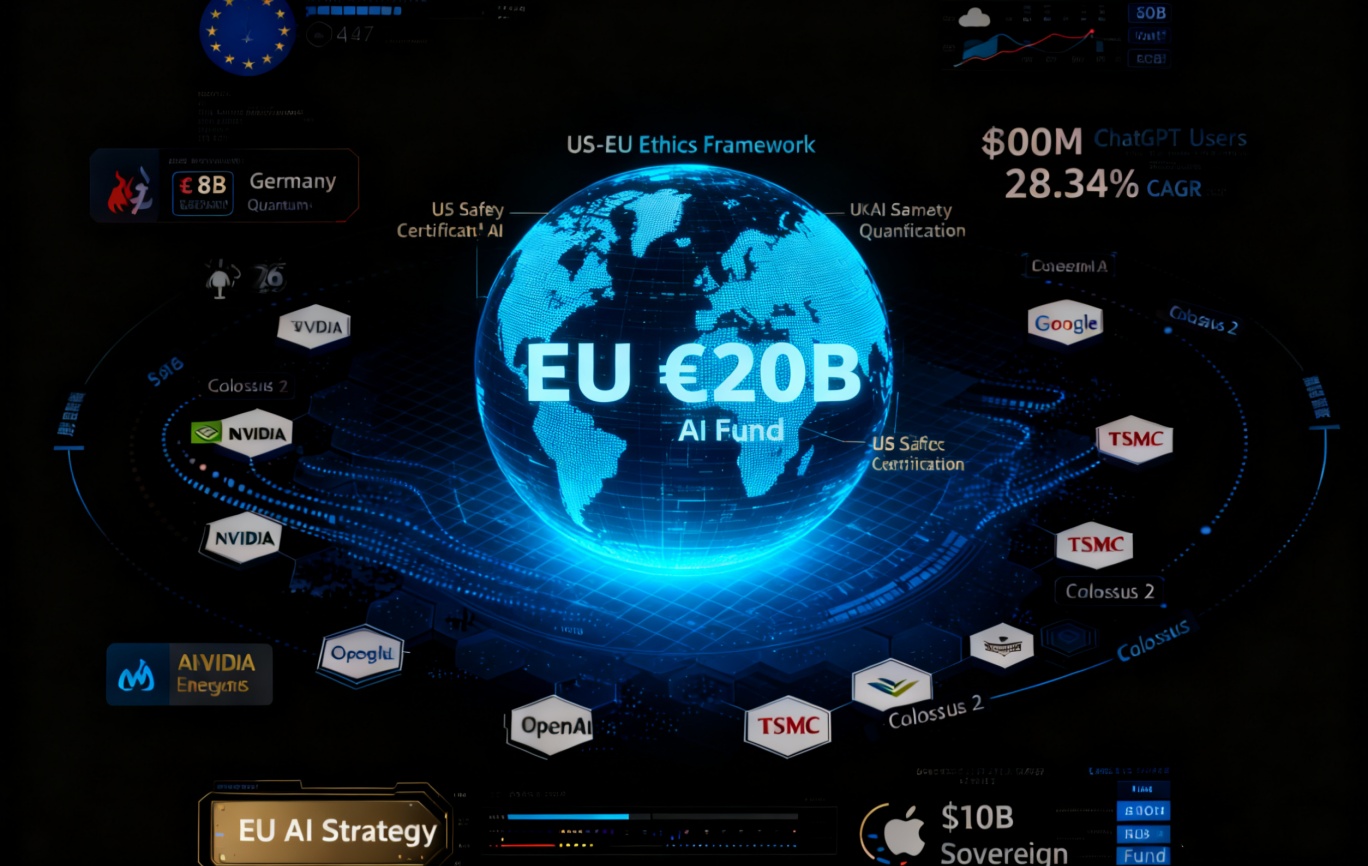AI News on October 15th

1. OpenAI and Broadcom Finalize 10GW AI Chip Partnership Details
#OpenAI #Broadcom #AIChips
OpenAI and Broadcom have finalized technical specifications for their 10-gigawatt AI chip partnership, with production scheduled to begin in late 2026. The custom chips will be optimized specifically for large language model inference tasks, potentially reducing OpenAI's dependency on NVIDIA GPUs for certain workloads while improving cost efficiency.
2. EU Announces AI Sovereignty Fund with €20 Billion Initial Capital
#EU #AISovereignty #Investment
The European Commission has launched a €20 billion AI Sovereignty Fund to support homegrown AI development and reduce dependency on foreign technology. The fund will provide grants, loans, and equity investments to European AI startups, research institutions, and infrastructure projects, with a focus on ethical AI development aligned with EU values.
3. Microsoft's Antitrust Lawsuit Expands to Include Multiple States
#Microsoft #Antitrust #Legal
The class action lawsuit against Microsoft over its OpenAI partnership has expanded to include attorneys general from California, New York, and Massachusetts. The plaintiffs allege that Microsoft's exclusive computing resource arrangements with OpenAI have created artificial scarcity, driving up costs for consumers and businesses using AI services.
4. UK Launches AI Safety Certification Mandate for Critical Infrastructure
#UK #AISafety #Certification
The UK government has implemented mandatory AI safety certification for all AI systems used in critical national infrastructure, including energy grids, transportation networks, and financial systems. The certification requires rigorous testing for model alignment, robustness, and safety protocols before deployment.
5. Germany Invests €8 Billion in Quantum-AI Integration Research
#Germany #QuantumAI #Research
Germany has committed €8 billion to establish three national research centers focused on integrating quantum computing with artificial intelligence. The initiative aims to develop hybrid quantum-classical algorithms that could revolutionize drug discovery, materials science, and complex optimization problems in manufacturing.
6. US Department of Energy Allocates $5 Billion for AI-Powered Grid Modernization
#DOE #EnergyGrid #AI
The US Department of Energy has announced a $5 billion program to deploy AI systems for national energy grid optimization. The initiative will use machine learning to balance energy supply and demand, integrate renewable sources, and prevent outages, representing one of the largest AI deployments in critical infrastructure.
7. France Establishes €10 Billion AI Sovereign Wealth Fund
#France #AIFund #Sovereignty
France has created a €10 billion sovereign wealth fund dedicated to AI development and deployment. The fund will invest in French and European AI startups, research institutions, and infrastructure projects, with the goal of ensuring European technological sovereignty in artificial intelligence and reducing foreign dependency.
8. Google DeepMind Achieves Breakthrough in Protein Folding Accuracy
#DeepMind #ProteinFolding #Healthcare
Google's DeepMind has announced a major breakthrough in protein folding prediction, achieving 99.2% accuracy on previously unsolved protein structures. The advancement could significantly accelerate drug discovery and personalized medicine development, with the new model being made available to research institutions worldwide through an open-access platform.
9. European Central Bank Implements AI for Real-Time Economic Monitoring
#ECB #AIEconomy #Monitoring
The European Central Bank has fully implemented its AI-powered economic monitoring system across the eurozone. The system analyzes real-time data from financial markets, banking indicators, and economic trends to detect emerging risks and provide policymakers with unprecedented insights for monetary policy decisions.
10. US and EU Establish Joint AI Ethics Certification Framework
#USEU #AIEthics #Certification
The United States and European Union have launched a joint AI ethics certification framework that provides standardized assessment and certification for AI systems. The framework focuses on fairness, transparency, accountability, and privacy protection, creating a common standard for ethical AI development and deployment across transatlantic markets.